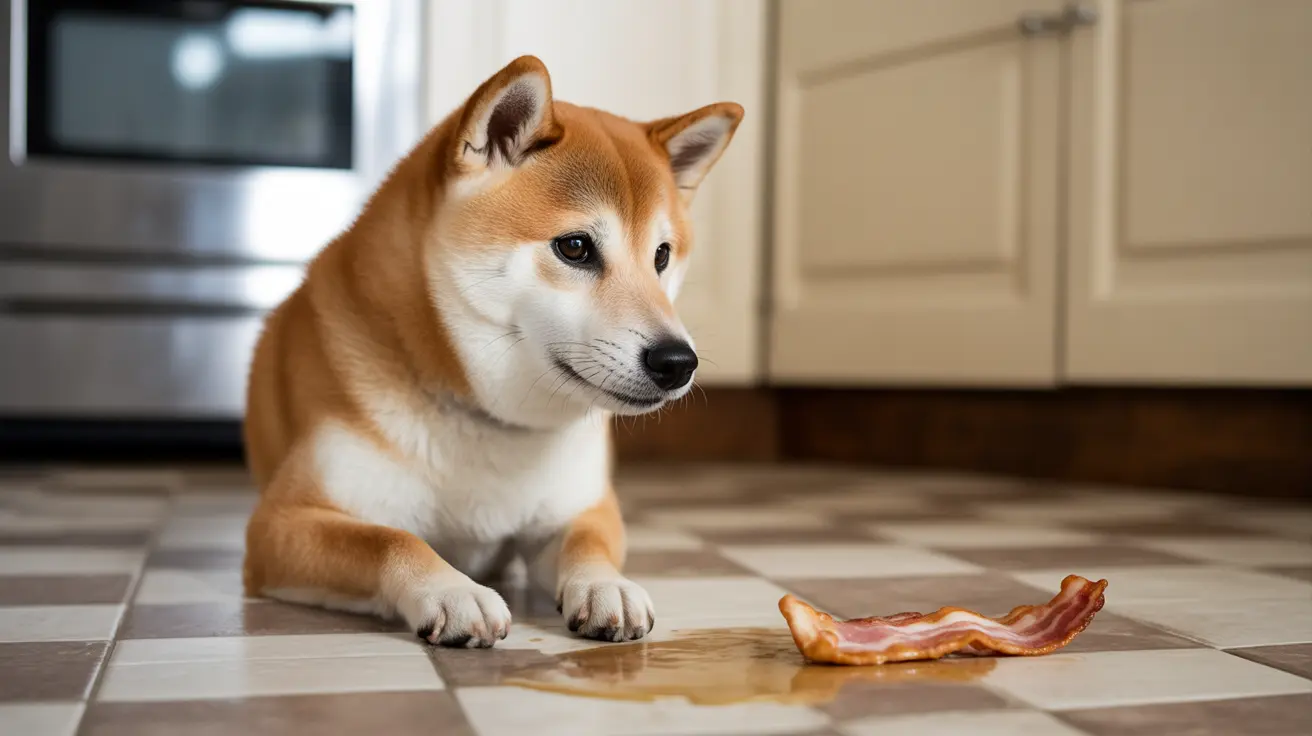Discovering your dog has eaten bacon grease can be alarming for any pet owner. This common kitchen incident requires immediate attention as it can lead to serious health complications. Understanding the risks and knowing how to respond can make a crucial difference in your pet's recovery.
In this comprehensive guide, we'll explore the potential dangers of bacon grease consumption in dogs, identify warning signs that require immediate veterinary attention, and outline the steps you should take to ensure your pet's safety.
Immediate Steps After Your Dog Eats Bacon Grease
Quick action is essential when you discover your dog has consumed bacon grease. Here's what you should do right away:
- Remove any remaining grease and secure all sources
- Document approximately how much grease was consumed
- Note the time of ingestion
- Watch for immediate signs of distress
- Contact your veterinarian for guidance
Understanding the Health Risks
Short-Term Complications
Within the first few hours after ingestion, your dog may experience:
- Vomiting and diarrhea
- Abdominal pain and bloating
- Excessive drooling
- Lethargy
- Loss of appetite
Serious Health Concerns
More severe complications can develop, particularly if your dog consumed a large amount of bacon grease:
- Acute pancreatitis
- Severe dehydration
- Electrolyte imbalances
- Gastrointestinal blockage
- Sodium toxicity
When to Seek Emergency Veterinary Care
Don't wait to contact your vet if you notice:
- Severe or persistent vomiting
- Bloody diarrhea
- Extreme lethargy
- Signs of dehydration
- Severe abdominal pain
- Difficulty breathing
- Collapse or weakness
Treatment and Recovery
Treatment typically depends on the amount consumed and severity of symptoms. Your veterinarian may recommend:
- Fasting to rest the digestive system
- Fluid therapy for dehydration
- Anti-nausea medications
- Pain management
- Special dietary restrictions
- Monitoring for pancreatitis
Prevention Strategies
To prevent future incidents:
- Store grease in sealed containers
- Dispose of grease properly in secured trash bins
- Keep kitchen areas inaccessible to pets
- Train dogs to avoid human food
- Use childproof locks on garbage containers
Frequently Asked Questions
What should I do immediately if my dog ate bacon grease?
Remove any remaining grease, document how much was consumed, and contact your veterinarian. Monitor your dog closely for signs of distress or illness.
What are the common symptoms to watch for after my dog consumes bacon grease?
Watch for vomiting, diarrhea, lethargy, excessive thirst, abdominal pain, and loss of appetite. These symptoms typically appear within a few hours of ingestion.
How serious is pancreatitis caused by eating bacon grease in dogs?
Pancreatitis can be very serious and potentially life-threatening. It requires immediate veterinary attention and may need hospitalization, especially in severe cases.
Can small amounts of bacon grease harm my dog, or is it only dangerous in large quantities?
Even small amounts can cause digestive upset or trigger pancreatitis, especially in sensitive dogs or breeds prone to pancreatic issues. No amount of bacon grease is considered safe for dogs.
How can I prevent my dog from getting into bacon grease or other fatty foods at home?
Secure all food waste in sealed containers, use childproof locks on garbage bins, never leave grease out to cool where dogs can reach it, and educate family members about the importance of keeping fatty foods away from pets.
Remember, while bacon grease incidents are common, they can be prevented through proper storage and disposal practices. If your dog does consume bacon grease, quick action and professional veterinary guidance offer the best chances for a positive outcome.






